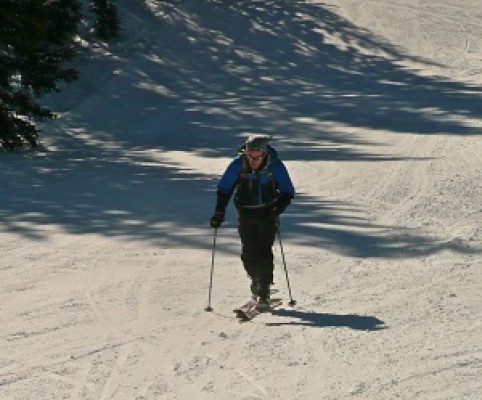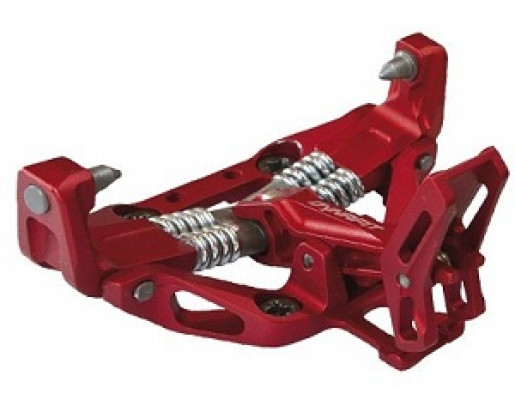5/14/2013 Skimo Racing vs Randonnee Racing
Short Version: They are equivalent.
Long Version: Keep reading.
The person or persons who make something popular often end up with the naming rights to that something. This is not an obscure legal process, but rather is one controlled by evolutionary linguistics. Say something often enough to enough people, and the name will stick.
 So it is with the case of randonnee racing. Randonnée is a French term for ski touring. And the French, similar to other European cultures, like to turn ski touring into a race. They've also talked about this proclivity enough to enough people. Consequently, English speakers have often used the French term when it comes to racing up and down mountains on skis.
So it is with the case of randonnee racing. Randonnée is a French term for ski touring. And the French, similar to other European cultures, like to turn ski touring into a race. They've also talked about this proclivity enough to enough people. Consequently, English speakers have often used the French term when it comes to racing up and down mountains on skis.
Unfortunately for the sake of simplicity, the etymological story does not end there. While we cannot begin to explain the cause of this phenomenon, there seems to be some linguistic or cultural barrier to full English acceptance of French words. They are two different languages after all. Mention randonnee to someone and chances are you will get a quizzical stare.
There are a few obvious barriers for English acceptance of the term that we can point out. It turns out to be rather difficult to get an accent aigu (´) over the letter "e" on an English keyboard. As such, it's often left out, something of which this article is already guilty. It's also unusual to see a double "n" followed by a double "e" in English. This may explain why one of the n's is often missing, resulting in "randonee racing".
A picture starts to emerge as to why some English speakers just leave off the n's and e's altogether. Shortening words is not just an Australian habit, as it's not uncommon to hear of someone winning a "rando race". It certainly is easier to say and type.
Going further, many English speakers seem to want nothing to do with the French term at all. They describe the basic activity as alpine touring or ski mountaineering. These are recognizable concepts and have a fighting chance of being understood by a native speaker without further explanation.
Unfortunately when you combine those native English concepts with the idea of competition, things go sour. "Alpine touring racing" and "ski mountaineering racing" simply do not roll off the tongue as well as "football", American or otherwise. If someone is to talk about a sport, they need to be able to refer to it in under a minute.
Consequently, the terms "skimo" and "skimo racing" have begun to gain in popularity. This is a handy amalgamation of ski mountaineering that is easy to say and type. It flows off the tongue and has a nice ring to it. Obviously we think so since we named our organization Skimo Co, short for The Ski Mountaineering Company.
In the end, the sport involves racing up and down mountains as fast as possible, leaving little time to mull over the linguistic intricasies of what one is doing. Regardless of which term or terms gain favor over the long haul, people are going to participate. There will be winners and losers, glory and pain. We hope you enjoy all of it.
Comments
Point taken in regards to adopting French words. Within the context of skiing, at least in our area, nobody uses the term Randonnée. And we rarely enjoy après-ski after a tour; instead we are usually hustling to work! Rappelling is approved versus abseiling, however.

7/22/2013
Uphill Skiing








